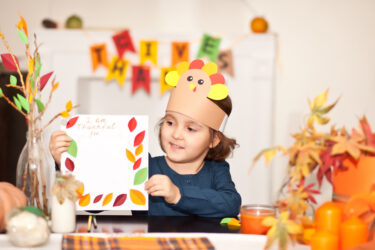The minutiae of everyday life can make it easy for moms and dads to grow lazy in their parenting, but there are four areas you want to always have a handle on.
 Boy-oh-boy have outspoken parents been taking a beating in the press these days! Amy Chua, author of the bestseller, Battle Hymn of the Tiger Mother, has been called an unfit mother for setting exceptionally high standards for her daughters’ academic and musical achievements. Gweneth Paltrow was vilified for saying, “I’d rather die than let my child eat Cup of Soup.” And Chicago-area coffee shop owner Dan McCauley was boycotted for posting a sign in his café window stating, “Children of all ages have to behave and use their indoor voices when coming to A Taste of Heaven.”
Boy-oh-boy have outspoken parents been taking a beating in the press these days! Amy Chua, author of the bestseller, Battle Hymn of the Tiger Mother, has been called an unfit mother for setting exceptionally high standards for her daughters’ academic and musical achievements. Gweneth Paltrow was vilified for saying, “I’d rather die than let my child eat Cup of Soup.” And Chicago-area coffee shop owner Dan McCauley was boycotted for posting a sign in his café window stating, “Children of all ages have to behave and use their indoor voices when coming to A Taste of Heaven.”
But wait! Shouldn’t parents set the bar high and urge their children to reach their full potential? Isn’t it our job to prevent them from eating foods laden with chemicals, dyes, and in the case of Cup a Soup, enough sodium to dehydrate an elephant? Is it really so outrageous to expect children to stay in their seats and keep their voices down in public? Has the world gone crazy or has parenting become such a “have it your way” activity, that we’ve gotten a little lazy about some more important aspects of this monumental task we’ve chosen to undertake?
Are we really too busy to be good parents? Or are we just complacent? If you think you might be guilty of putting your parenting on cruise control, too, ask yourself the following four questions.
1) Do you have a “spirited” child?
If people often refer to your child as high spirited, precocious or full of energy, chances are you’ve got a mini-maniac who’s driving everyone else bananas and giving his teacher grey hair and migraines. The lazy parent chalks up out-of-bounds behavior to immaturity and expects Junior to just outgrow it.
Jim Fay, cofounder of the Love and Logic Institute and author of the Parenting With Love and Logic book and video series, says pretending that backtalk, ignoring directions from adults and disruptive behavior is just a phase is “the kiss of death” that can have severe ramifications down the road. “We’re seeing an awful lot of that in America right now. We’re seeing kids who just won’t behave in school. So many of them have such weak boundaries at home, they naturally assume they don’t have to listen to the teacher,” he says.
Fay’s simple solution is to set a consequence that requires the child to do work to repay for the energy that was expended dealing with his behavior. Fay instructs parents to say something like “Oh, Logan. I had to spend time talking to your teacher about your actions today. I was supposed to be scooping dog poop out of the yard when she called. But hearing about your behavior made me so sad and so tired. I guess you’ll need to take care of that chore for me.” Kids will quickly pick up on the pattern. Fay says, “It works like a charm. Pretty soon all you have to do is put your hand on your forehead and whisper, ‘Oh … I feel an energy drain coming on,’ and they’ll get the picture.”
2) Do you know what’s for lunch?
Did you know that a typical elementary school lunch eaten by first graders contains 650 – 700 calories and has almost twice the recommended childhood levels of saturated fat and sodium? Or that the Williamson County lunch program considers baked beans a vegetable? French fries are also considered a vegetable in many programs. Do you realize the chocolate and strawberry milk has as much sugar as a Coke, which is more than half a child’s daily allowance of the sweet stuff?
School lunch nutritional information is readily available online at most school district websites. So why are most parents in the dark? Because they haven’t taken the time to check. And even if they did, they’ve never made an effort to learn how much sugar, sodium, fat or calories their children need each day, so they’d have no idea whether a school lunch, a homemade lunch or even the items in their own refrigerators are healthy. Finding out how much sugar or saturated fat a child should eat each day is as easy as a three second Google search or a phone call to your pediatrician.
If we’ve got time to make sure our munchkins have enough Silly Bands to trade on the playground or just the right hair bow to match their new outfit, can’t we spare a few minutes to understand their most basic nutritional needs and pack them a lunch with the proteins, grains and fruits their bodies need to grow?
3) Do you keep track of screen time?
It’s probably safe to say that most of us are guilty of using the great electronic babysitter to get some peace and quiet. Television, video games and computers are here to stay, and most experts agree that they can be both entertaining and educational when they’re used in moderation.
An article in the Journal of Pediatrics reported that after studying 9,000 toddlers and preschoolers, experts discovered most of them log about four hours of screen time per day. That’s twice the recommended limit. And older kids? Time Magazine reported last month that on average, kids ages 8 – 18 spend seven hours and 38 minutes a day using entertainment media. It’s more time than they spend with their parents or in school. Disturbing? Yes. Fixable? Of course.
Marie Winn, author of The Plug-In Drug: Television, Computers and Family Life, says, “As a general rule, kids younger than 2 don’t need any screen time during these crucially formative years.” She recommends that parents limit their preschoolers to one hour a day and that children ages 6 – 10 limit their screen time to two hours on weekends and holidays, but to try to avoid it on busy school days unless the computer is required for research. “Of course, parents must be flexible about these limits,” she adds. “If there is a three-hour movie you’re watching as a family, for instance.”
If those limits seem extreme, why not keep track of how much time your children spend watching TV and playing video games this week and compare that total to how much time they spend learning or studying, helping around the house and playing with siblings and friends.
4) Do you make family time a priority?
Ask parents to name their number one priority and 10 out of 10 will respond, “My family.” Yet studies show most families sit down together for dinner a mere four nights of the week. And when they eat together, half of families are staring at the television instead of talking to one another. USA Today reports, “Children eat 42 percent of their dinners while watching TV.”
Kids need one-on-one time with parents much more than they need extra Mandarin lessons or to be part of a travel sports team. Sports and hobbies come and go, but family is forever. Why not focus on an activity that will last them a lifetime, the family dinner? Research shows that preschoolers who participate in frequent family dinners have better language skills, while a Harvard University study found that family dinners were the activity that “most fostered healthy childhood development” by creating more intelligent, confident kids with better intrapersonal relationships with their parents and siblings.
Kids don’t need fancy outings or elaborate play dates with their parents. They simply want your undivided attention doing something they enjoy like playing with Play-Doh, a game of hide-and-seek or rough housing on the living room floor. Relationship expert Gary Chapman, author of The Five Love Languages, reminds us, “Family time doesn’t mean just sitting on the couch together paying attention to whatever is on the television.”
If you’re looking for ways to enjoy each other’s company, create a family night each week. Play games, build something together or take a long walk together after dinner. You can work together on the weekends picking up leaves, straightening the garage or washing the cars. Or move together by going for walks in the woods, shooting hoops or visiting a playground. How about picking out a book that everyone will enjoy and reading it aloud for 20 minutes each night? Finally, turn travel time into talking time. No radio, handheld devices or movies. Just talk. You might just rediscover what an amazing kid you’ve got!
What’s Right Versus What’s Easy
It’s been said that, “Time is the most precious thing you own.” Don’t families deserve your most precious gift? If we decide what’s really important, we’ll have the time and the energy to teach kids how to act, feed them food that won’t give them heart disease, make sure they’re living in the real world instead of a virtual one, and become the engaged and enthusiastic teachers, mentors and life coaches they can’t wait to spend time with.
Deborah Bohn is a frequent contributor to this publication.




